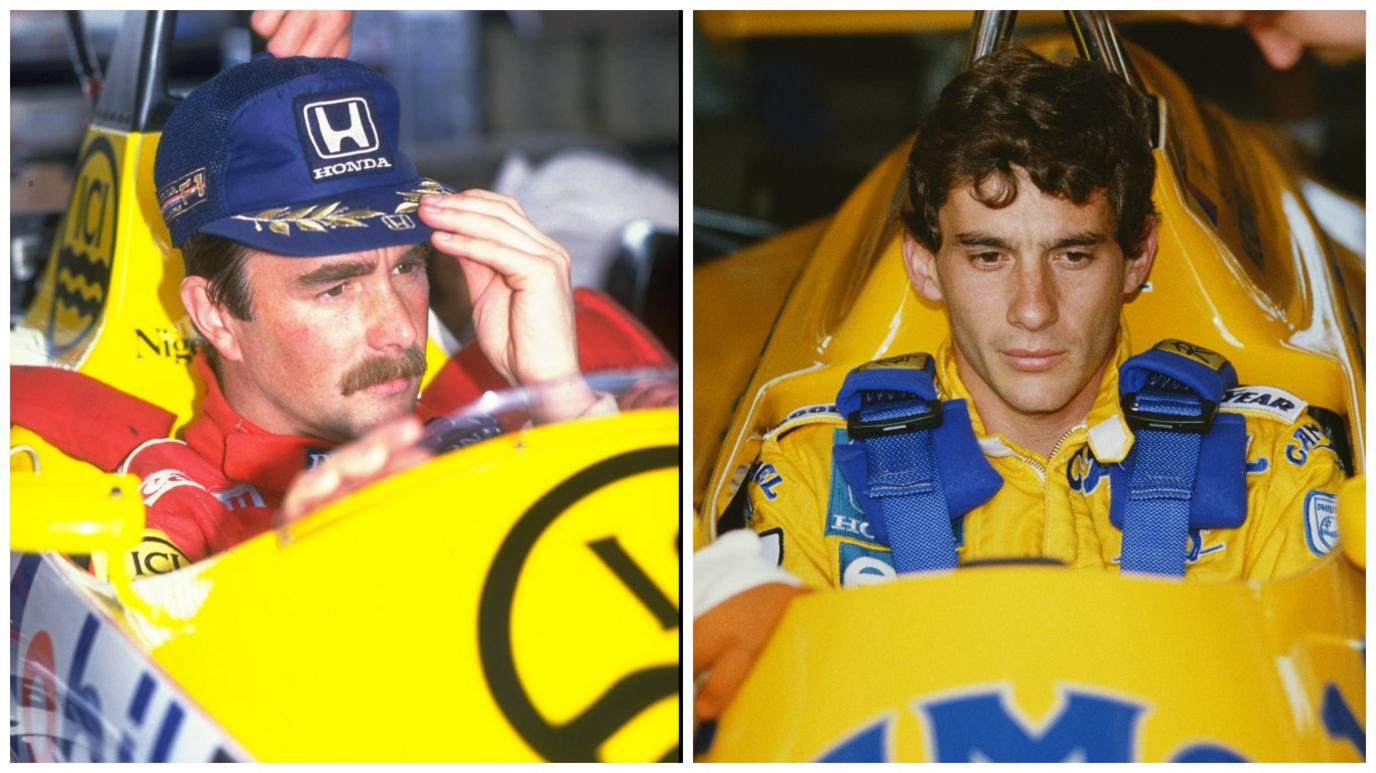Sebastian Vettel: FIA could take further action over Lewis Hamilton collision
- Published
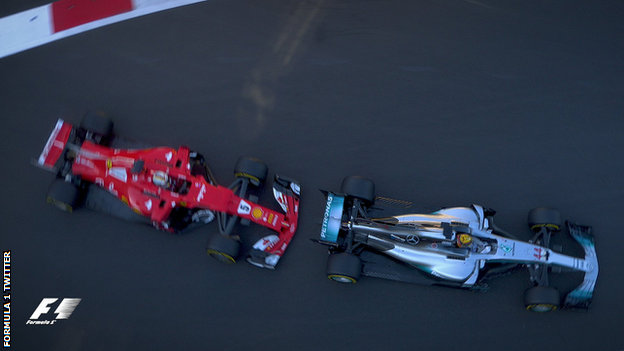
The incident that started it all: Vettel alleged Hamilton 'brake-tested' him when the race was restarted after a red flag
Ferrari driver Sebastian Vettel could face further punishment for his collision with Mercedes' Lewis Hamilton at the Azerbaijan Grand Prix.
Governing body the FIA is to hold a meeting on 3 July to "further examine the causes of the incident to evaluate whether further action is necessary".
The outcome will be made public before the Austrian Grand Prix on 7-9 July.
Vettel was given a 10-second stop-and-go penalty and three points on his licence for driving into Hamilton.
It is understood Hamilton's driving in the incident is not in question and the hearing will focus on Vettel's behaviour.
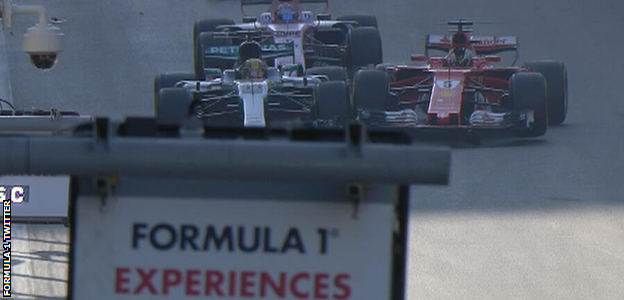
The moment two heavyweights come to blows
The FIA warned Vettel after an incident in the Mexican Grand Prix last year - when he swore over the radio at race director Charlie Whiting - that he could face a tribunal in the event of any future incident of a similar nature.
In Azerbaijan, Vettel accused Hamilton of 'brake-testing' - deliberately slowing in front of him - as they prepared for a re-start behind a safety car.
Vettel then pulled alongside Hamilton and drove his car into the Mercedes so they banged wheels.
Hamilton's car telemetry data was analysed by the stewards on Sunday and he was cleared of any wrongdoing.
Did officials consider disqualifying Vettel?
The four stewards in Azerbaijan spent some minutes contemplating what was the most suitable punishment for Vettel.
They had no doubt Vettel had driven into Hamilton on purpose in a fit of pique.
They chose the second-most severe form of punishment - a 10-second stop-and-go penalty. The only tougher option was disqualification which it was considered, on balance, Vettel's actions did not deserve.
Some have argued the stewards got it wrong and Vettel should have been kicked out of the race.
But it is also clear the penalty has appeared less severe because, as it turned out, Vettel ended up finishing ahead of Hamilton and extending his championship lead.
The Mercedes driver had to pit to have a loose headrest replaced and came out of the pits behind Vettel.
Had Hamilton not had this problem, he would have won the race with Vettel in fifth and the Mercedes driver would have taken the championship lead by three points, rather than seeing his deficit extend to 14.
Insiders are suggesting that FIA president Jean Todt is perturbed by Vettel's behaviour. Only he has the power to call a new hearing, as has been done in this case.
Has Vettel got disciplinary problems?
Vettel has an immediate problem in the wake of the three penalty points he was given in Baku in addition to the stop-and-go penalty. He now has nine on his licence - and 12 in a 12-month period means an automatic race ban.
The first two of those nine points were for forcing Felipe Massa's Williams off the track at last year's British Grand Prix, so they are soon to drop off Vettel's licence - but not before the Austrian Grand Prix next weekend.
So Vettel will have to avoid any further controversy at the Red Bull Ring or he could end up missing the British Grand Prix.
Beyond that, this is the second road-rage incident from Vettel in the past eight months - the first being when, antagonised by the driving of Red Bull's Max Verstappen in Mexico, he swore at race director Whiting.
He apologised to Whiting in person after the race and did so again in letters to both Whiting and FIA president Todt later that week.
However, he was warned further action could be taken if he behaved in a similar fashion again, external and that is what has happened here.
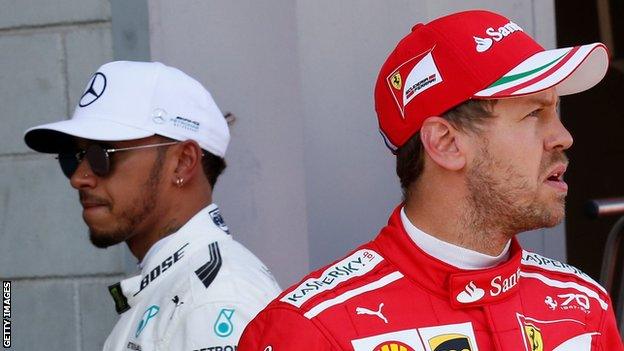
The collision with Hamilton was Vettel's second road-rage incident in the past eight months
Did Hamilton do anything wrong?
The red-flag period gave the race stewards in Baku the chance to properly analyse telemetry data from Hamilton's car.
They looked at his behaviour at all three safety-car restarts and concluded the Mercedes driver did nothing wrong. The FIA said he did not brake or lift off excessively and maintained a more or less constant speed.
The language in that statement leaves room for doubt as to whether Hamilton slowed down before Vettel hit him.
Some on social media have reacted to on-board video from Hamilton's car, claiming telemetry graphics indicated he did brake shortly before the initial impact, and used it as evidence that Vettel was right to accuse Hamilton of 'brake-testing' him.
But the video does not show this. Close analysis of the footage shows Hamilton is slowing as he approaches the apex of the corner, and keeps the brakes on lightly past the apex. His minimum speed is 51km/h as he exits the corner. But he has come off the brakes and is coasting before Vettel hits him.
At this point, Hamilton was preparing for the restart, and managing his gap to Vettel while bunching up the pack, trying to ensure he had the most advantageous position. As the leader, that is his prerogative.
The FIA says there was no heavy braking or anything contrary to the rules.
What do others within F1 think?
As one senior source said: "Seb was not expecting it and he should have been. He accelerated anticipating Lewis would too. But Lewis had a clear view of the safety car ahead of him with its lights off. Why would he accelerate? He wants to get a gap (to the safety car), plus it's his right to control the pace."
Former F1 driver and David Coulthard agreed, saying in his Channel 4 commentary: "Hamilton hasn't accelerated then decelerated, he has kept a constant pace. Sebastian has misjudged it and then in his anger made contact with Hamilton.
"I don't think there is any part of that you can point a finger at Hamilton and say he has done something wrong. Vettel was anticipating what he would do, forgetting the fact the lead car can control the pace."
The eventual race winner, Red Bull's Daniel Ricciardo, also backed this view.
- Published2 July 2017
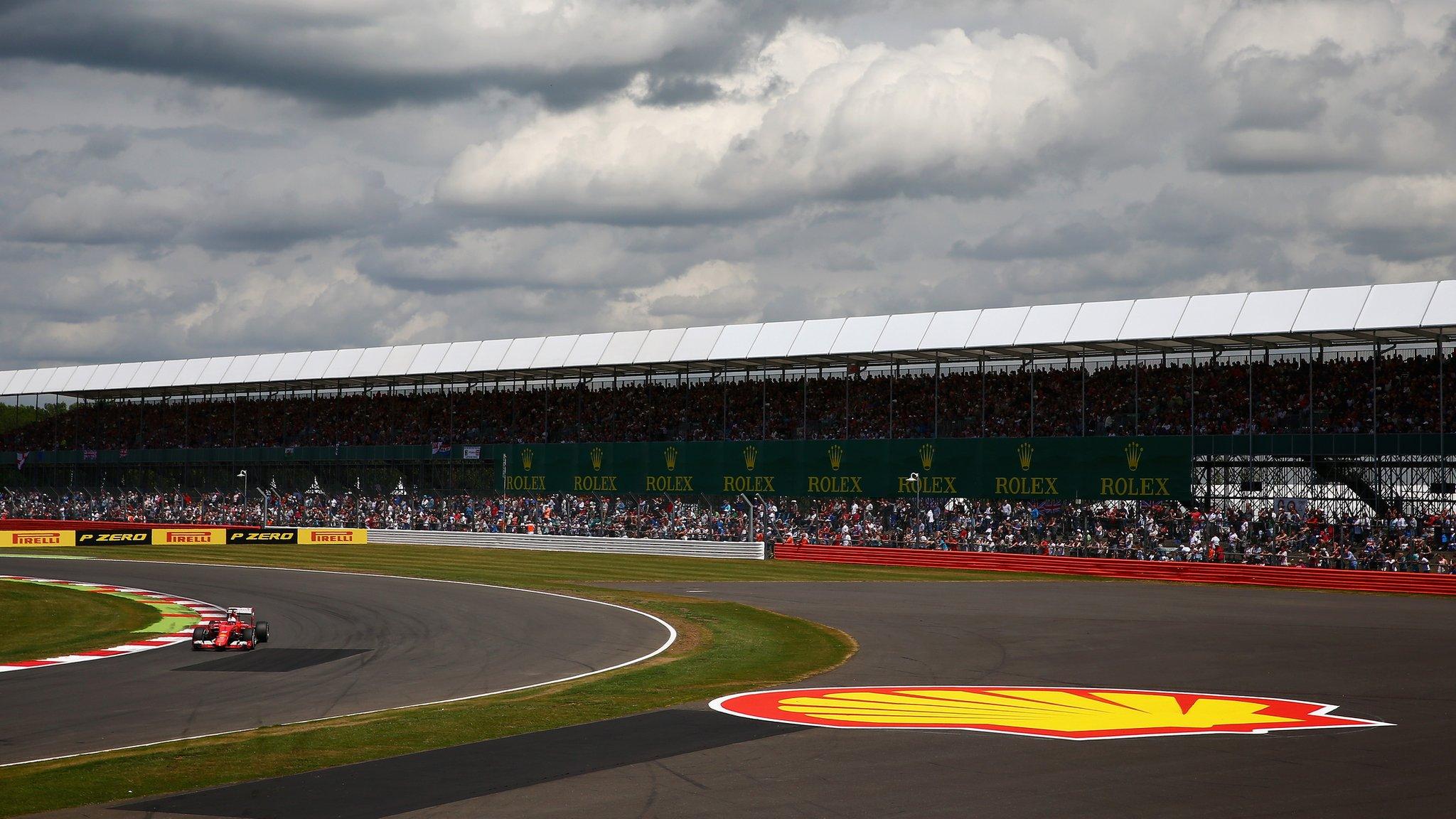
- Published25 June 2017
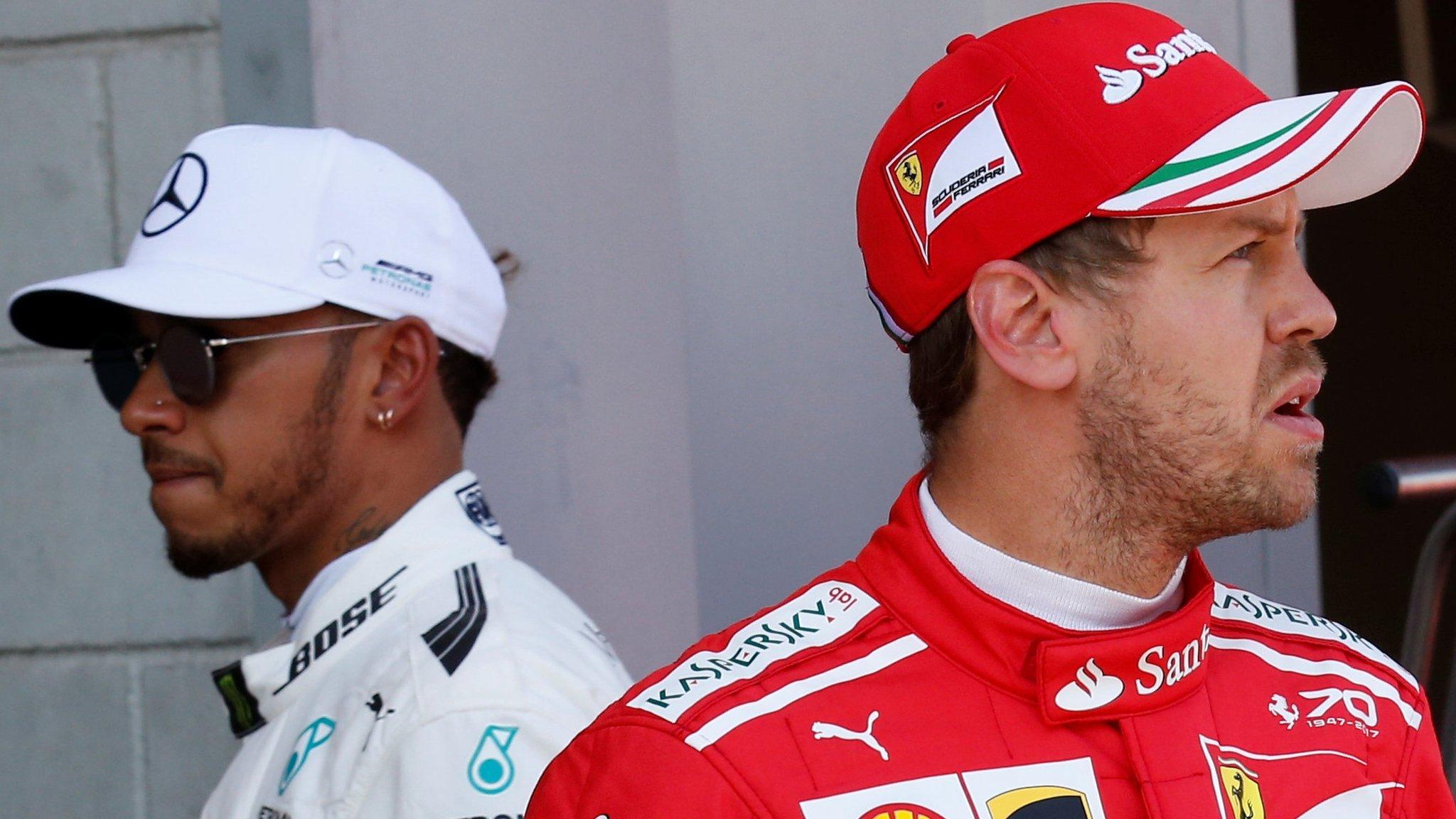
- Published25 June 2017
